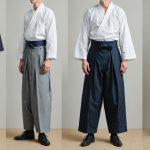Key Wellness Practices Transforming UK Women’s Fashion
The intersection of wellness trends and UK women’s fashion is reshaping the industry, with wellness practices influencing fashion from design to consumer preferences. Central to this transformation are mindfulness, sustainable fabrics, and body positivity, each driving tangible changes.
Mindfulness, once solely a personal practice, now informs clothing choices, pushing designers toward creating pieces that encourage calm and intentional living. Sustainable fabrics are gaining traction, with UK brands prioritizing organic and recycled materials that reduce environmental impact. Ethical production processes emphasize transparency and responsibility, further aligning with wellness values.
Also to see : How Can UK Women’s Fashion Influence Mental Well-being?
The influence on fashion labels—both mainstream and independent—is immediate. Many UK women’s fashion brands integrate wellness principles to craft collections that resonate with conscious consumers. This is evident in marketing approaches that highlight ethical sourcing and mental well-being.
Consumers now demand more than style; they look for meaning and connection in their clothing, prompting brands to respond with more inclusive sizing, eco-friendly options, and designs promoting positive body image. The shift exemplifies how wellness practices influencing fashion are not a trend but a fundamental evolution in the UK fashion landscape.
In parallel : What Are the Latest Trends in UK Women’s Fashion and How Do They Affect Mental Wellness?
Mindfulness and Its Expression Through Fashion
Mindfulness in fashion reflects a growing UK mindfulness trend where clothing serves as more than style—it becomes a tool for intentional living. This approach encourages wearers to connect consciously with their attire, fostering calm and focus throughout daily routines.
UK brands incorporate mindfulness by designing mindful clothing collections that prioritize comfort, simplicity, and meaningful details. For instance, some labels use soft, natural fabrics and relaxed fits to support both physical ease and mental calm. These designs often feature minimalistic aesthetics and subtle affirmations, inviting wearers to engage in moments of reflection.
The influence of mindfulness in fashion extends to consumer behaviour. Shoppers increasingly seek garments that promote wellbeing—not just through comfort but through a mindful relationship with their wardrobe. This shift encourages purchasing decisions aligned with values like quality over quantity and timelessness over fast fashion.
As the UK mindfulness trend gains momentum, both mainstream and independent labels experiment with versatile pieces that can transition from work to relaxation, enhancing daily mindfulness practices. This fusion of wellness and fashion highlights evolving consumer priorities and underscores the role of mindful clothing in transforming the UK women’s fashion landscape.
Sustainable Fabrics and Eco-Friendly Production
Sustainable fashion UK is increasingly shaped by brands adopting eco-friendly fabrics such as organic cotton, hemp, and recycled polyester. These materials reduce reliance on water-intensive or polluting processes common in conventional textile production. UK women’s fashion labels emphasize ethical production in women’s fashion, implementing fair labor standards and minimizing environmental impact throughout manufacturing.
This commitment involves sourcing from suppliers that adhere to sustainable farming and recycling practices. For example, recycled yarns transform textile waste into high-quality fabrics, addressing both resource conservation and waste reduction. Organic fabrics not only benefit the environment but also appeal to consumers seeking skin-friendly and non-toxic materials.
Brands publicize these efforts through transparent marketing strategies that highlight eco-consciousness as a core identity. The influence of sustainable fashion UK is evident in product lines clearly labeled with fabric origin and production ethics, strengthening wellness practices influencing fashion. This transparency fosters consumer trust and aligns with the growing demand for responsible choices.
Moreover, ethical production in women’s fashion encourages a shift from fast fashion to more durable, timeless pieces. UK consumers increasingly prioritize longevity and environmental responsibility, prompting brands to innovate and lead in sustainable fabric use and production methods. This transformation underscores how sustainability is integral to evolving wellness trends.
Body Positivity and Inclusive Fashion Movements
The body positivity UK movement is reshaping women’s fashion inclusivity by foregrounding diverse body representation and challenging traditional beauty standards. UK brands increasingly adopt inclusive sizing across collections to ensure garments cater to a broad spectrum of body shapes and sizes. This commitment not only addresses consumer demand but also fosters a welcoming shopping experience.
Labels incorporate positive body image messaging in marketing campaigns, using real-life models with varied physiques to encourage self-acceptance. This approach helps dismantle stigma and aligns well with wellness trends promoting mental and emotional wellbeing through fashion choices.
Consumer preferences now emphasize comfort, fit, and authenticity. Many UK fashion brands respond by developing adaptive designs that accommodate different body types without compromising style or quality. Inclusive sizing not only involves numerical range expansion but also considers tailoring and fabric stretch to enhance wearability.
By integrating wellness practices influencing fashion, the industry supports empowerment through clothing and representation. This shift reflects a broader cultural movement valuing diversity and self-love, making inclusivity a core pillar of contemporary UK women’s fashion.
Key Wellness Practices Transforming UK Women’s Fashion
Wellness trends are decisively shaping UK women’s fashion, with wellness practices influencing fashion across multiple dimensions. Prominent practices include mindfulness, sustainable fabrics, and body positivity, each setting new industry standards. Mindfulness prompts designers to craft clothing that enhances mental calm and intentionality, translating into relaxed fits and natural materials. Sustainable fabrics—from organic cotton to recycled polyester—underscore the growing dedication to eco-friendly fabrics and ethical production. Meanwhile, the body positivity movement drives widespread adoption of inclusive sizing and campaigns promoting authentic representation.
Mainstream and independent UK fashion labels now integrate wellness into their core identities, reflecting consumer demand for meaningful, responsible choices. This influence is evident as brands shift from fast fashion toward timeless, durable pieces designed with both wellbeing and environmental impact in mind.
Consumer preferences highlight a desire for garments that combine comfort, ethical sourcing, and empowerment. UK women increasingly select brands aligning with holistic wellness values, reinforcing a shift in shopping behaviour that supports sustainability, mindfulness, and inclusivity. This convergence marks a pivotal evolution in the UK women’s fashion scene, where wellness practices influencing fashion become a defining paradigm rather than a passing trend.
Key Wellness Practices Transforming UK Women’s Fashion
Wellness trends such as mindfulness, sustainable fabrics, and body positivity are profoundly reshaping UK women’s fashion, influencing design, production, and consumer choices. Mindfulness encourages designers to create clothing that supports mental calm and purposeful living, often through relaxed cuts and natural textiles. This focus on wellness practices influencing fashion promotes a mindful wardrobe that emphasizes quality and longevity over fleeting trends.
The integration of sustainable fabrics—including organic cotton, hemp, and recycled polyester—reflects a strong commitment among UK brands to reduce environmental harm. Ethical production methods further solidify this dedication, ensuring fair labor practices and transparency throughout manufacturing processes. These practices influence brand narratives, with many labels foregrounding eco-consciousness to connect authentically with their audience.
Body positivity is another key wellness practice transforming the fashion landscape. UK labels increasingly incorporate inclusive sizing and promote authentic representation in campaigns, fostering acceptance and diversity. This shift responds directly to consumer demands for comfort and inclusivity, making wellness an integral part of fashion identity.
Together, these wellness trends guide both mainstream and independent UK fashion brands. They respond to evolving consumer values by blending style with mindfulness, sustainability, and inclusivity—creating a fashion culture rooted in holistic wellbeing.
Key Wellness Practices Transforming UK Women’s Fashion
Wellness trends such as mindfulness, sustainable fabrics, and body positivity are key forces reshaping UK women’s fashion today. These wellness practices influencing fashion encourage brands to prioritize mental wellbeing, environmental responsibility, and inclusivity alongside style. Mindfulness inspires designers to create garments that promote calm through soft materials and relaxed silhouettes. This approach fosters a mindful wardrobe where clothing supports intentional living rather than impulsive consumption.
Sustainable fashion UK takes center stage with widespread use of eco-friendly fabrics like organic cotton and recycled textiles. Ethical production in women’s fashion ensures fair labor and transparency, reflecting growing consumer demand for responsible choices. UK brands now integrate these values into marketing and product design, promoting long-lasting pieces that minimize ecological footprints.
The body positivity UK movement drives greater inclusivity with expanded inclusive sizing and campaigns celebrating diverse bodies. Shoppers seek authenticity and comfort, influencing brands to offer well-fitted, flattering options that empower self-expression.
Mainstream and independent UK fashion brands alike respond to these shifts, aligning collections with consumer values. The result is a transformed market where wellness practices influencing fashion form the foundation for innovation, connection, and sustainability.



